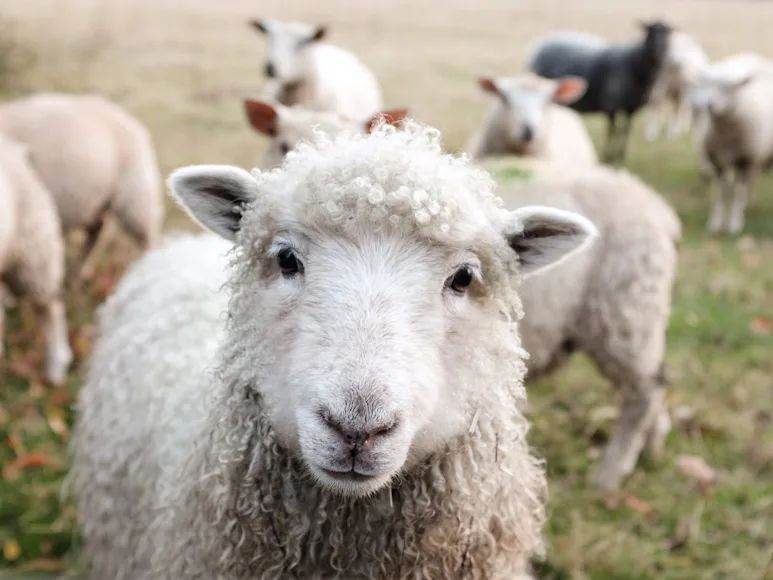We may earn revenue from the products available on this page and participate in affiliate programs. Learn more ›
Merino wool is a high-performing natural material used for socks, baselayers, sweaters, and more. Like other wool clothing, Merino wool is excellent for outdoor activities because of its ability to continue to insulate when wet and its natural antimicrobial properties. Plus, unlike synthetic fabrics, it is natural and does not shed microplastics.
Although Merino wool is excellent for outdoor use, the soft fibers aren’t as durable as fully synthetic options. That’s why you’ll often see wool blended with synthetic fibers. That way, we get the properties of wool fibers with increased durability.
Still, none of our clothes will last forever, but Merino wool can be a long-lasting fabric with proper care and washing.
General Wool Care
Some of the same care tips apply to traditional wool clothing, but Merino wool is much softer and has finer fibers than standard wool. If you’ve ever worn an old wool sweater, you may know that wool can be quite itchy. In contrast, Merino wool is soft and feels quite nice against your skin.
The difference in feeling between these wool fabrics is the size and thickness of the fibers. Even within Merino wool, there are varying grades of fiber thickness. Merino wool can range from an ultrafine fiber (17.5 microns) to a strong fiber (23+ microns). To put that into perspective, average human hair is anywhere from 40-50 microns thick. The higher the micron thickness of the fibers, the itchier that wool is likely to feel.
With that in mind, how you care for the wool may vary. Even if you have two very similar Merino wool products from different companies, the best practices for caring for each article of clothing could be different.
The good news is that because of the exceptional natural properties of wool, you can wear it for days without having to wash it. You may notice that compared to standard polyester clothing, wool clothing doesn’t hold onto odors quite as well. That’s because wool fibers can absorb odor-causing bacteria, which prevents them from growing on the surface of the clothing.
Now, you still need to wash your wool clothing, but washing them too frequently can wear out the fibers faster, shortening their life. On the other hand, not washing wool clothing often enough causes fabric pilling. So, having a healthy balance is important with wool.
Washing Merino Wool
When it comes time to wash your Merino wool, there are some standard things you can do to help it last a bit longer. These are general Merino wool washing tips. So, remember that every product is unique, and following the manufacturer’s washing instructions is the best practice.
Use these basic steps to get the most effective clean:
Turn the garment or socks inside out.
Machine wash on gentle/delicate using cool or cold water. Warm or hot water is known to shrink wool during washing.
Use a gentle/mild detergent or a wool-specific wash. NO bleach or fabric softener should be used on any wool products. Bleach destroys the wool fibers. Fabric softener leaves a residue coating on the fibers, reducing the wool’s natural properties like temperature regulation and moisture management.
We like Nikwax Wool Wash
Some wool products can be tumble dried on low. However, air drying all wool products can extend their life and is recommended.
Lay wool fabrics flat to dry. Hanging can distort the shape of the garment.
Many Merino wool products like socks or baselayers can be put in a standard washing machine, but always check the garment tag to make sure.
How to Store Wool Clothing
You may not need specific storage instructions if you wear Merino wool clothing year-round. For those who cycle their closet seasonally, knowing how to store your Merino wool is another great way to keep it wearable for longer.
Before storing any clothing or outdoor gear, ensure it is clean. Putting dirty, smelly clothing in storage is the perfect way to attract moths. Follow the cleaning instructions in the last section and make sure they’re completely dry before storing them. If moths are a big concern, consider storing some cedar with your clothes. Cedar is known to keep moths and other harmful insects out of clothes and is an easy addition to any storage closet.
When possible, store clothing in boxes or vacuum-sealed bags. This will further protect the fabric from things like moths. If you are only storing them for a short time, then this likely isn’t necessary, but it is recommended for things like seasonal or long-term storage.
Lastly, store things flat when you can. Rolling wool socks is tempting, but when putting them in storage, balling up or rolling up the socks can change the shape of the fabric. Storing them flat helps them hold their shape.
FAQ
Q: How often should you wash Merino wool?
New Merino wool clothing should be washed after the first 2-3 wears. After that, it is at your discretion and is often determined by how frequently you wear the wool items. Socks and baselayers may need to be washed more regularly because they come into direct contact with your skin, but Merino wool sweaters likely won’t need to be washed as often. A general smell test should be enough to know if it is time to wash your wool clothing.
Q: Is Merino wool hard to care for?
No, Merino wool is not hard to care for. It is a naturally odor-resistant material, and the waxy Lanonlin coating can prevent staining. Since most Merino wool clothing can be washed in a washing machine, care is as easy as most of our other clothing.
Q: Can I dry-clean wool clothing?
Some wool can be dry cleaned. But the general rule of thumb with wool is never to dry clean it as it is known to shorten the life of that material. Always reference manufacturer guidelines when it comes to caring and cleaning. If dry cleaning is an option, it will be disclosed in the washing instructions.
Q: Can wool be ironed?
Clothing from 100% wool fibers can be ironed at a very low setting. Any clothing mixed with a synthetic should not be ironed, and most Merino wool clothing is a blend of materials.


